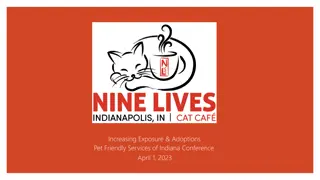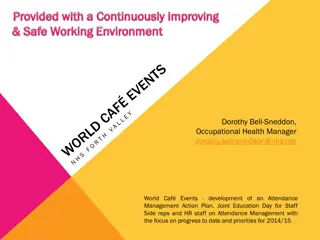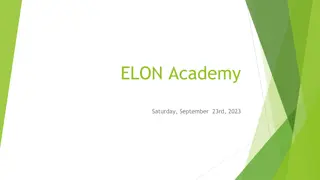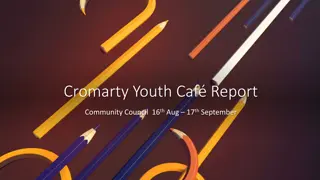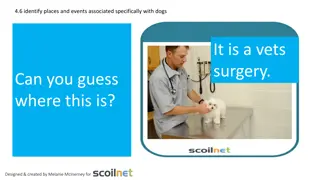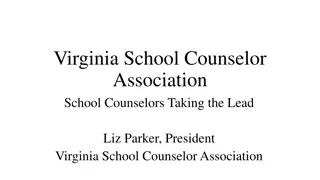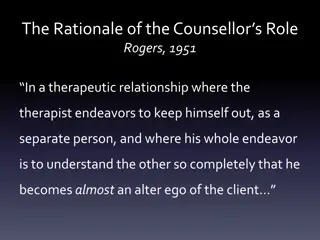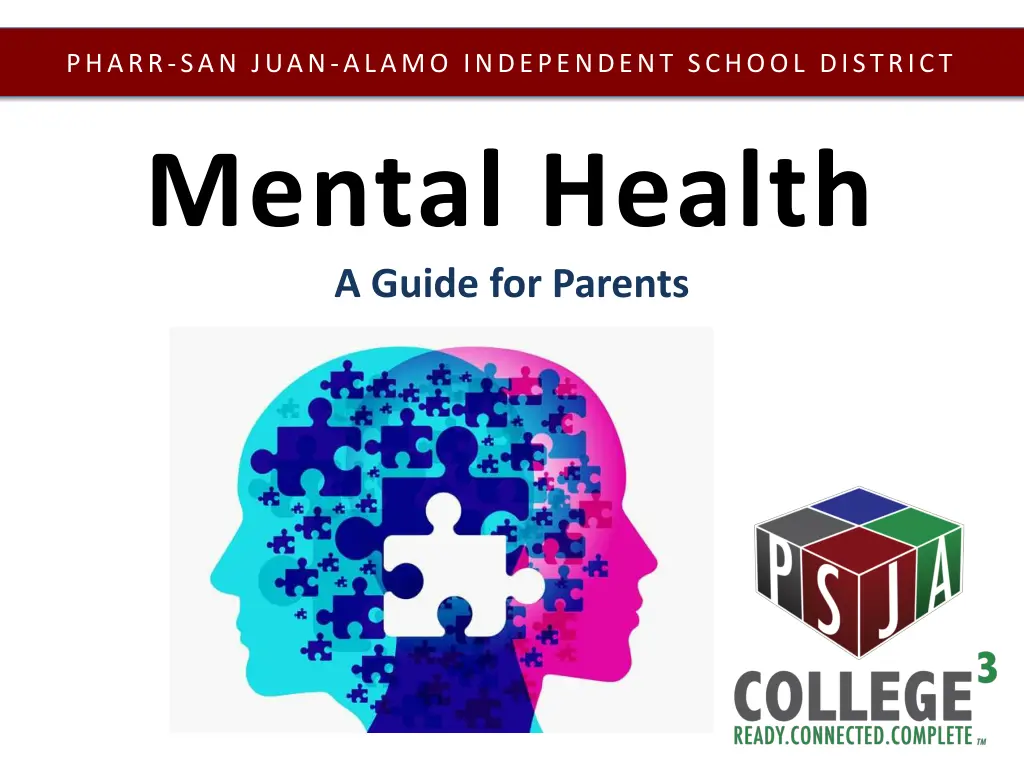
Understanding Mental Health and Early Warning Signs
Explore resources from PHARR-SAN-JUAN-ALAMO INDEPENDENT SCHOOL DISTRICT on mental health statistics, early warning signs, and what mental health entails. Learn to recognize signs of mental health issues and access valuable information for parents and individuals. Discover the importance of mental well-being at every stage of life and how to provide support to those in need.
Download Presentation

Please find below an Image/Link to download the presentation.
The content on the website is provided AS IS for your information and personal use only. It may not be sold, licensed, or shared on other websites without obtaining consent from the author. If you encounter any issues during the download, it is possible that the publisher has removed the file from their server.
You are allowed to download the files provided on this website for personal or commercial use, subject to the condition that they are used lawfully. All files are the property of their respective owners.
The content on the website is provided AS IS for your information and personal use only. It may not be sold, licensed, or shared on other websites without obtaining consent from the author.
E N D
Presentation Transcript
PHARR-SAN JUAN-ALAMO INDEPENDENT SCHOOL DISTRICT Mental Health A Guide for Parents
AGENDA Statistics 2020 What is Mental Health? Early Warning Signs Mental Health Difficulties Mental Health Disorders Anxiety Disorder Common Effects Did You Know? Mental Health Resources 2
MENTAL HEALTH VIDEO https://www.youtube.com/watch?v=y-ACcDIGi-c&list=TLPQMDEwNzIwMjFPLf3c6I-N9w&index=1 3
STATISTICS 2020 Mental Health Statistics 2020 In late June, 40% of U.S. adults reported struggling with mental health or substance use. One in six U.S. youth aged 6-17 experience a mental health disorder each year. Half of all lifetime mental illness begins by age 14, and 75% by age 24. Suicide is the second-leading cause of death among people aged 10-34 in the U.S. and the 10th leading cause of death in the U.S. More than 70% of youth in the juvenile justice system have a diagnosed mental illness. The most common mental illnesses in the U.S. are anxiety disorders, which affect 40 million adults (18.1% of the population). Mental health and substance use challenges affect everyone differently and recognizing when to get help yourself or offer support to someone else is an important step in changing these statistics for the better. https://www.mentalhealthfirstaid.org/ 4
WHAT IS IT? What is Mental Health? What is Mental Illness? Mental health includes our emotional, psychological, and social well-being. It affects how we think, feel, and act. It also helps determine how we handle stress, relate to others, and make choices. Mental health is important at every stage of life, from childhood and adolescence through adulthood. Over the course of your life, if you experience mental health problems, your thinking, mood, and behavior could be affected. Many factors contribute to mental health problems, including: Biological factors, such as genes or brain chemistry Life experiences, such as trauma or abuse Family history of mental health problems A broad term used to describe the range of mental health problems; from those with the most sever mental disorders. https://www.mentalhealth.gov 5
EARLY WARNING SIGNS How do I know if someone s experiencing mental health issues? It is important to look for warning signs. Experiencing one or more of the following feelings or behaviors can be an early warning sign of a problem: Eating or sleeping too much or too little Pulling away from people and usual activities Having low or no energy Feeling numb or like nothing matters Having unexplained aches and pains Feeling helpless or hopeless Smoking, drinking, or using drugs more than usual Feeling unusually confused, forgetful, on edge, angry, upset, worried, or scared Yelling or fighting with family and friends Experiencing severe mood swings that cause problems in relationships Having persistent thoughts and memories you can't get out of your head Hearing voices or believing things that are not true Thinking of harming yourself or others 6 Inability to perform daily tasks like taking care of your kids or getting to work or school
WHAT CAN CAUSE MENTAL HEALTH DIFFICULTIES Possible Mental Health Triggers There are numerous but not limited to these mental health triggers that can cause mental health difficulties. Stress Moving Job Loss Change of Environment Deprivation 7
MENTAL HEALTH DISORDERS There are many different types of mental health disorders and they can affect your thinking, mood, and behaviors. Here are some examples: Anorexia Depression Schizophrenia Bi-Polar Disorder Anxiety Obsessive Compulsive Disorder Paranoia Phobia 8
ANXIETY DISSORDER People with anxiety disorders respond to certain objects or situations with fear and dread. They have physical reactions to those objects, such as a rapid heartbeat and sweating. An anxiety disorder is diagnosed if a person: Has an inappropriate response to a situation Cannot control the response Has an altered way of life due to the Anxiety Anxiety disorders include: Panic Disorder Phobias 9
COMMON EFFECTS Mental Health Common Effects Isolation/Social Exclusion Alcohol Abuse Drug Abuse Self Harm Stress Suicidal Thoughts 10
DID YOU KNOW? Celebrities Who Have Suffered from Mental Health Demi Lovato-Bipolar Disorder Steve Young- Social Anxiety Disorder Michael Phelps- ADHD Heath Ledger Depression Leonardo DiCaprio- Obsessive Compulsive Disorder Lady Gaga- PTSD Adele- Postpartum Depression Dan Reynolds- Clinical Depression 11 10 Celebrities Who Struggle With Mental Health | University of Utah Health
LOCAL MENTAL HEALTH RESOURCES Hidalgo County Resources Need Immediate Help in an Emergency or Crisis 911 Rio Grande Valley Crisis Hotline 866-423-9304 National Crisis Hotline 800-273-TALK (8255) United Way of South Texas 956-686-6331 Information & Referral Community Council of the RGV 211 Alcoholics Anonymous956-544-8530 Abuse Hotline 1-800-252-5400 National Suicide Prevention Lifeline1-800-273-TALK (8255) American Foundation for Suicide Prevention Crisis Text Line Text TALK to 741741 Jason Foundation Palmer Drug Abuse Program 956-544-3333 South Texas Behavioral Center 888-977-1400 Tropical Texas Behavioral Health 956-289-7000 UTRGV Counseling Services https://www.utrgv.edu/counseling/services/suicide-prevention/index.htm Hospitals: McAllen Medical Center-Emergency Room Rio Grande Regional Hospital- Emergency room Doctor s Hospital at Renaissance- Emergency Room Edinburg Regional Medical Center-Emergency Room 956-632-4100 956-632-6443 956-362-5101 956-388-6500 12
RESOURCES https://www.mentalhealthfirstaid.org/ https://www.mentalhealth.gov 10 Celebrities Who Struggle With Mental Health | University of Utah Health www.rethink.org www.mentalhealth.org.uk www.nami.org www.mentalhealth.gov 13
PHARR-SAN JUAN-ALAMO INDEPENDENT SCHOOL DISTRICT psjaisd.us facebook.com/psjaisd twitter.com/psjaisd All materials, content and forms contained in this presentation are the intellectual property of PSJA ISD and may not be copied, reproduced, distributed or displayed without PSJA ISD s express written permission. If written permission is granted, information may be used accompanied by an acknowledgement that PSJA ISD is the source.

